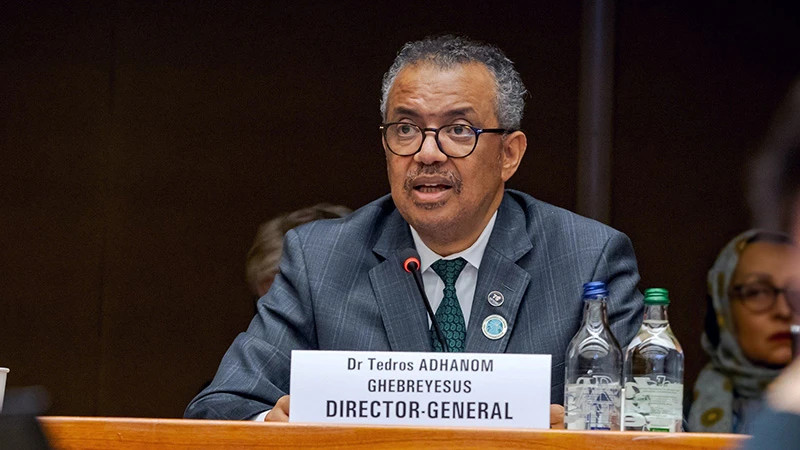The initiative to build a global pandemic treaty was launched in 2021, when the COVID-19 pademic put the world health system in crisis.
The WHO Director-General Tedros Adhanmon Ghebreyesus stressed that this treaty will set out principles of high commitment to strengthen solidarity and fairness.
The current outbreak of many diseases at the same time is creating an urgent need to strengthen coordination among the countries and international organisations. The countries also continue to promote the implementation of cooperative initiatives on pandemic response. The WHO has recently launched the global coronavirus network CoViNet, aiming to detect, monitor and evaluate early and accurately the SARS-CoV-2, MERS-CoV and new coronavirus strains.
The countries agreed to establish the Intergovernmental Negotiating Body (INB), with the task of drafting and negotiating the treaty, while hoping o reach this historic agreement by the deadline of May 2024. The treaty also becomes one of the top priorities of WHO Director-General Tedros Adhanom Ghebreyesus during his second five-year tenure.
However, the distance from desire to reality is long. There are only a few weeks left until the deadline, but the countries have still not been able to resolve disagreements during the negotiation process. The most recent round of negotiations missed the goal of completing the treaty’s contents before March 31 so that 194 countries could ratify it at the 2024 annual session of the World Health Assembly which will open on May 27.
According to the WHO, in this negotiation round, negotiators discussed provisions in the draft treaty, including financing for pandemic preparedness, equitable access to necessary health measures, and enhancement of the medical workforce. The countries are currently debating key sticking issues, including access to conduct investigations of emerging pathogens, better surveillance of outbreaks, secure financing and anti-pandemic technology transfer for less developed countries.
An additional round of negotiations will be conducted from April 29 to May 10 at the WHO headquarters in Geneva (Switzerland), so that the countries continue to "race against time" to find consensus for the pandemic treaty.
The INB Co-chair Roland Driece expects that the countries will take advantage of last chance, eliminate disagreements and not let negotiations fail.
This official stated clearly that there is no other choice but to negotiate successfully and the countries need to promote their responsibilities in maintaining the urgency of this health issue. As planned, the INB will draft a new treaty before April 18, focusing on areas that have reached consensus among countries.
The current outbreak of many diseases at the same time is creating an urgent need to strengthen coordination among the countries and international organisations. The countries also continue to promote the implementation of cooperative initiatives on pandemic response. The WHO has recently launched the global coronavirus network CoViNet, aiming to detect, monitor and evaluate early and accurately the SARS-CoV-2, MERS-CoV and new coronavirus strains.
The experts still believe that the countries' attention to health disasters has been gradually giving way to other important issues such as climate change, and conflicts in Gaza, Ukraine, etc. This is also a barrier that makes it difficult for the global pandemic treaty to reach the finish line on time. As soon as negotiations on this treaty were launched, many opinions said that this would be a difficult process because its contents include legally binding measures for the signatory countries. Accordingly, the countries must share more benefits.
Despite difficulties, reaching a global pandemic treaty will have special significance for the world. The chaos caused by the COVID-19 pandemic in the past has shown that the world needs a common agreement to create a solid foundation for the preparations of effective response to epidemic disasters in the future.
















